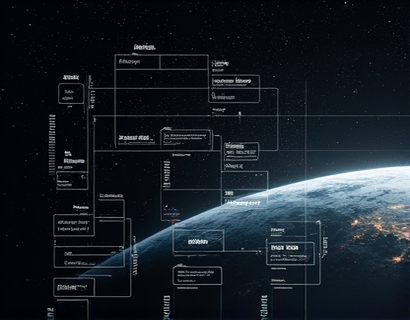Decentralized DAO Management: Elevate Governance and Drive Growth with Advanced Analytics and Collaboration Tools
In the rapidly evolving landscape of decentralized finance and autonomous organizations, effective governance is paramount for the success and sustainability of Decentralized Autonomous Organizations (DAOs). Traditional governance models often fall short in providing the necessary tools and insights required to manage complex decentralized systems efficiently. This article delves into the transformative power of advanced software solutions designed specifically for DAO management, focusing on how these tools can elevate governance, drive growth, and foster a more transparent and collaborative environment.
Understanding the Challenges of DAO Governance
DAOs operate on blockchain technology, leveraging smart contracts to automate decision-making processes. While this decentralization offers numerous benefits, it also introduces unique governance challenges. One of the primary issues is the lack of centralized control, which can lead to decision paralysis and inefficiency. Additionally, the transparency and immutability of blockchain transactions, while beneficial, can also make it difficult to implement changes or correct mistakes without consensus. Furthermore, the diverse and often global nature of DAO members can result in communication barriers and conflicting interests.
To address these challenges, advanced software solutions have emerged, offering a suite of tools that streamline governance processes, enhance transparency, and facilitate informed decision-making. These tools are designed to bridge the gap between the decentralized nature of DAOs and the need for structured, efficient management.
Streamlining Governance with Advanced Software
Advanced software for DAO management provides a comprehensive platform that simplifies various governance tasks. One of the key features is the ability to create and manage proposals systematically. Proposals can be submitted, discussed, and voted on within the platform, ensuring that all steps of the governance process are transparent and accessible to all members. This not only reduces the risk of miscommunication but also builds trust among stakeholders.
Another critical aspect is the implementation of voting mechanisms that are both secure and user-friendly. Advanced platforms use cryptographic techniques to ensure the integrity of votes, preventing tampering and ensuring that each member's vote is counted accurately. This level of security is essential in maintaining the credibility of the governance process.
Enhancing Collaboration and Transparency
Collaboration is at the heart of any successful DAO. Advanced software solutions facilitate seamless communication and collaboration among members, regardless of their geographical location. Integrated chat and discussion forums allow for real-time conversations, while file-sharing capabilities ensure that all relevant documents and data are easily accessible. This fosters a more cohesive and productive environment, where members can work together effectively towards common goals.
Transparency is another cornerstone of effective DAO governance. Advanced platforms provide comprehensive dashboards and reporting tools that offer real-time insights into the organization's activities, finances, and decision-making processes. Members can monitor the status of proposals, track voting results, and access detailed reports on the DAO's performance. This level of transparency not only builds trust but also empowers members to make informed decisions.
Leveraging Advanced Analytics for Data-Driven Decisions
One of the most significant advantages of advanced DAO management software is its integration of advanced analytics. These tools collect and analyze vast amounts of data generated by the DAO, providing valuable insights that can inform strategic decisions. For instance, analytics can help identify trends in member engagement, highlight areas of inefficiency, and predict the outcomes of proposed changes. This data-driven approach ensures that decisions are based on objective analysis rather than subjective opinions.
Customizable dashboards allow DAO administrators to focus on key performance indicators (KPIs) that are most relevant to their organization. Whether it's monitoring token distribution, tracking project milestones, or analyzing community sentiment, these dashboards provide a comprehensive overview of the DAO's health and performance. By leveraging these insights, leaders can proactively address issues and capitalize on opportunities for growth.
Fostering a Culture of Innovation and Growth
Advanced software solutions not only streamline governance but also create an environment conducive to innovation and growth. By automating routine tasks, members and administrators can focus on higher-value activities such as strategy development, community building, and exploring new opportunities. This shift in focus fosters a culture of continuous improvement and innovation, essential for the long-term success of a DAO.
Moreover, the ability to quickly and efficiently implement changes based on data-driven insights accelerates the DAO's ability to adapt to market conditions and member needs. This agility is crucial in the fast-paced world of decentralized finance, where the ability to pivot and innovate can mean the difference between success and obsolescence.
Case Studies and Real-World Applications
Several DAOs have already begun to harness the power of advanced management software to transform their governance and drive growth. For example, a decentralized governance platform for a community-driven project successfully implemented a proposal management system that reduced the time from proposal submission to voting by 70%. This efficiency gain allowed the DAO to respond more quickly to member needs and maintain high levels of engagement.
Another case involves a token-based governance model where advanced analytics tools were used to identify underrepresented groups within the community. By addressing these gaps, the DAO was able to increase diversity and inclusivity, leading to more balanced and well-rounded decision-making.
Conclusion
In conclusion, the integration of advanced software solutions in DAO management is not just a trend but a necessity for organizations aiming to achieve sustainable growth and effective governance. These tools streamline processes, enhance collaboration, and provide valuable insights through advanced analytics. By embracing these technologies, DAOs can overcome the inherent challenges of decentralized governance and unlock their full potential. As the decentralized ecosystem continues to evolve, those who adopt and leverage these advanced tools will be best positioned to thrive in the future.










































